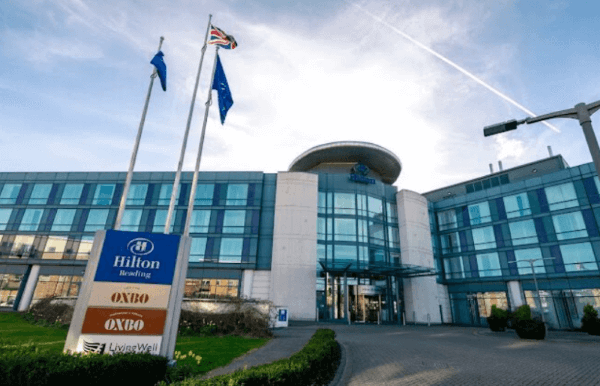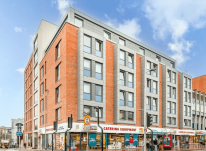
In real estate, most investment companies will have
a niche, one that they're recognised for and that they've built up considerable
track record in.
It's how they attract debt and investment partners - by being known to deliver on a deal. It's also how they attract agents who are key to introducing the opportunities in the first place. Getting all of these stakeholders lined up, managing the timing and any challenges that crop up in the meantime is vital.
Knowing where you sit on the risk curve is also key for all parties, and that used to be pretty obvious. Investors would take a view on the likely risks involved on a project and, if conservative, minimise them accordingly.
Those risks were mostly known and accounted for in pricing. For example, the risk might be the tenant itself, how it was performing and thus if it might be managed out. Or it could be to do with the fabric of the asset and whether it would need Capex, when to make it compliant with legislation. Or with the debt, and what interest rates would do. We might even have priced in the chances of a shock election result such as Brexit.
In 2019, we saw that 73% of investment funds were weighted towards retail and offices and that didn’t feel right to us. We started divesting in these sectors and pivoted towards beds and sheds. It was a good move and one that saw us weather the storm the year after.
But on the other hand, what every single investor didn't price in was the unexpected. And so, when Covid-19 hit, the unexpected sent investment markets reeling: particularly those that had invested in hospitality.
Hotels, restaurants, pubs closed, some of which never reopened. Yes, there were Government reliefs, and private reliefs from those lucky enough to be based on the Great Estates. Yes, some dark kitchens sprung up and brought in supplementary income. Yes, the British weather was kind and restaurants and hotels made use of outdoor space with council support. Yes, some hotels received long-term contracts from the Government to help deal with asylum seekers once lockdown was lifted.
But operational real estate in hospitality changed forever as consumer behaviours shifted structurally. Overseas and business travel plummeted. Supply chains were impacted with costs soaring in every direction. Workers left the hospitality industry in droves.
Not good for any investor, operator or owner of real estate in these sectors. No-one saw it coming, no one priced it in, no one considered a global pandemic a risk at all.
From our own viewpoint, 30 years of successful transaction deals helped Aprirose build an enviable reputation as the people to go to partner on interesting real estate deals, mostly in hospitality. But investing in hospitality as part of our pivot towards beds (and sheds) was not the success it really should have been. The operational risks suddenly overtook the potential interesting returns, long-term income and innovative deal structures and our track record spanning decades showed up some blips.
It's now coming to the end of 2024 and what have we learned as investors?
Firstly, stick to what we're best at. Yes, the operating ventures might have been brilliant for us without Covid, but in trying to operate them ourselves it was a deviation from what we do best which is finding quirkier complex deals where others may not see the value-add or asset management opportunity. We may still invest in operational assets going forwards but only with a best-in-class, third party operator in the field, like we do with Z Hotels – we own the real estate but they operate it for us. For example, we are currently looking at an operating student accommodation asset and, if we decide to go for it, we’ll be employing a sector specialist to operate it.
Secondly, we will consider similar deals in other sectors too. We are mostly known for hospitality - and we will continue to make acquisitions in this sector - but we also know residential, retail, offices, industrials. The trick is finding the right opportunity at the right investment structure, with the right partner, the right debt lined up and asset management strategy: all of which is where we shine thanks to having debt and asset management teams in house.
Perhaps most importantly, we've learned to expect the unexpected and that means being smart, considering unforeseen scenarios and being adaptable. As a small investor who puts skin in the game, investor partners can trust that we will continue to make the right opportunities happen - with these lessons in mind. And, with a solid ambition to double our Assets under Management, we are ready to take advantage of the market by finding those hidden gems and share the opportunities with other investors.
Knowing where you sit on the risk curve is also key for all parties, and that used to be pretty obvious. Investors would take a view on the likely risks involved on a project and, if conservative, minimise them accordingly.
Those risks were mostly known and accounted for in pricing. For example, the risk might be the tenant itself, how it was performing and thus if it might be managed out. Or it could be to do with the fabric of the asset and whether it would need Capex, when to make it compliant with legislation. Or with the debt, and what interest rates would do. We might even have priced in the chances of a shock election result such as Brexit.
In 2019, we saw that 73% of investment funds were weighted towards retail and offices and that didn’t feel right to us. We started divesting in these sectors and pivoted towards beds and sheds. It was a good move and one that saw us weather the storm the year after.
But on the other hand, what every single investor didn't price in was the unexpected. And so, when Covid-19 hit, the unexpected sent investment markets reeling: particularly those that had invested in hospitality.
Hotels, restaurants, pubs closed, some of which never reopened. Yes, there were Government reliefs, and private reliefs from those lucky enough to be based on the Great Estates. Yes, some dark kitchens sprung up and brought in supplementary income. Yes, the British weather was kind and restaurants and hotels made use of outdoor space with council support. Yes, some hotels received long-term contracts from the Government to help deal with asylum seekers once lockdown was lifted.
But operational real estate in hospitality changed forever as consumer behaviours shifted structurally. Overseas and business travel plummeted. Supply chains were impacted with costs soaring in every direction. Workers left the hospitality industry in droves.
Not good for any investor, operator or owner of real estate in these sectors. No-one saw it coming, no one priced it in, no one considered a global pandemic a risk at all.
From our own viewpoint, 30 years of successful transaction deals helped Aprirose build an enviable reputation as the people to go to partner on interesting real estate deals, mostly in hospitality. But investing in hospitality as part of our pivot towards beds (and sheds) was not the success it really should have been. The operational risks suddenly overtook the potential interesting returns, long-term income and innovative deal structures and our track record spanning decades showed up some blips.
It's now coming to the end of 2024 and what have we learned as investors?
Firstly, stick to what we're best at. Yes, the operating ventures might have been brilliant for us without Covid, but in trying to operate them ourselves it was a deviation from what we do best which is finding quirkier complex deals where others may not see the value-add or asset management opportunity. We may still invest in operational assets going forwards but only with a best-in-class, third party operator in the field, like we do with Z Hotels – we own the real estate but they operate it for us. For example, we are currently looking at an operating student accommodation asset and, if we decide to go for it, we’ll be employing a sector specialist to operate it.
Secondly, we will consider similar deals in other sectors too. We are mostly known for hospitality - and we will continue to make acquisitions in this sector - but we also know residential, retail, offices, industrials. The trick is finding the right opportunity at the right investment structure, with the right partner, the right debt lined up and asset management strategy: all of which is where we shine thanks to having debt and asset management teams in house.
Perhaps most importantly, we've learned to expect the unexpected and that means being smart, considering unforeseen scenarios and being adaptable. As a small investor who puts skin in the game, investor partners can trust that we will continue to make the right opportunities happen - with these lessons in mind. And, with a solid ambition to double our Assets under Management, we are ready to take advantage of the market by finding those hidden gems and share the opportunities with other investors.

14 January 2026
Refinance of Hilton Reading
10 November 2025
Insight on Purpose Built Student Accommodation (PBSA)